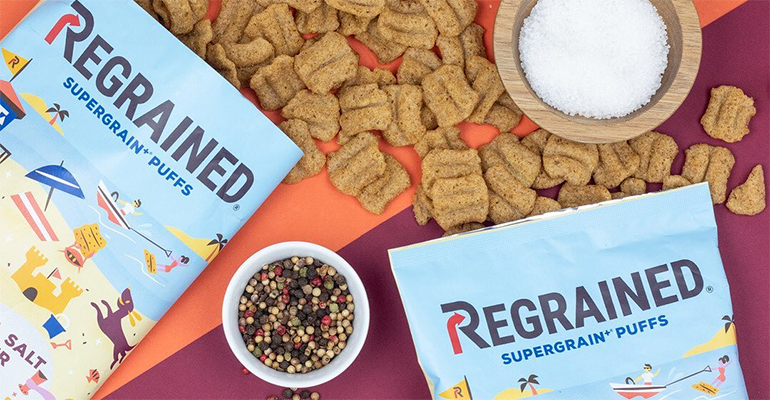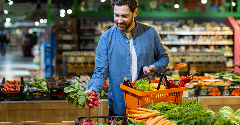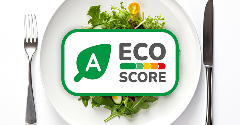News
ReGrained flour is inaugural recipient of Upcycled Food certification
7 Jul 2021Upcycled food company ReGrained is the first company in the world to receive the new Upcycled Food Certification for its SuperGrain+ flour. This new certification is awarded by the Upcycled Food Association, which finalized its certification standards in January 2021. ReGrained takes spent beer grains and repurposes them by milling the grain into high-protein, whole-grain flour.
"Nearly 35% of the world's food is lost or wasted, which generates 8% of greenhouse gas emissions and poorly uses our planet's precious resources. Bringing tasty and nutritious upcycled foods to every aisle of the grocery store combats this global issue,” ReGrained CEO Dan Kurzrock said in a statement.

In the brewing category alone, the United States generates over 20 billion pounds of spent grain each year. While ReGrained does not alleviate the total amount of food waste from entering the environment, SuperGrain+ flour upcycles “tens of billions of pounds of de-sugared, sprouted ancient grains created annually by the brewing industry,” according to the press release. Each pound of spent grain that is repurposed prevents carbon dioxide emissions equivalent to burning 1 pound of coal and saves over 300 gallons of water.
Upcycling food not only has impressive environmental benefits, but it also has notable financial benefits. Food waste that companies upcycle was worth $46.7 billion in 2019, and this figure is expected to grow 5% annually for the next 10 years, according to a study from Future Market Insights. Part of the accelerant for this growth is the fact that consumers have been repeatedly shown to pay more for products that are sustainable.
With both an environmental and an economic incentive to upcycle, companies have ample incentive to work toward obtaining a certification verifying that its products utilize ingredients that the Upcycled Foods Association defines as ones "that otherwise would not have gone to human consumption, are procured and produced using verifiable supply chains, and have a positive impact on the environment."
Unsurprisingly, there are multiple Big Food corporations that are interested in validating their commitment to sustainability through upcycling. Barry Callebaut has indicated that it is aiming to obtain an Upcycled Food Certification for its WholeFruit Evocao. This chocolate expression uses both the pulp and the pulp juice from the cacao fruit in the production of its chocolate.
While SuperGrain+ flour was the only ReGrained product to earn this certification, the company produces a variety of other upcycled ingredients for food manufacturers, including oats from milk production and pulp from juicing. Going forward, it would not be surprising if the 10-year-old company looks to achieve the same certification status for its range of products as it works to position itself as a leading food upcycling technology and ingredient platform.
Related news

UK Government overhauls childhood obesity strategy
21 Nov 2025
The UK Government has announced a new package of measures designed to reverse the nation’s childhood obesity epidemic following the release of statistics revealing the scale of the crisis.
Read more
How younger consumers are redefining ingredient choices and rejecting brand loyalty
18 Nov 2025
Gen Z and millennial consumers’ preferences for transparency, functionality, and purpose are “redefining the very nature of consumption itself”, says SPINS.
Read more
New UPF standard hoped to offer consumers ‘coherence and clarity’
10 Nov 2025
Ingredients companies are being urged to enter “a new era of partnership and innovation” following the launch of the industry’s first non-UPF verification scheme.
Read more
Ingredient quantities mislabelled on popular protein bars, independent tests show
5 Nov 2025
Some popular protein bars contain more fat, carbs, and/or sugars than claimed on their labels, independent nutrition testing reveals.
Read more
Does promoting protein content push up plant-based sales?
27 Oct 2025
Promoting the protein content of meat-free products is a more effective sales strategy than adding carbon labels, a study of UK bakery chain Greggs suggests.
Read more
Supplement shoppers seek storytelling and science-backed suppliers
17 Oct 2025
Supplement consumers want specific health benefits that focus on prevention and personalisation, according to data from HealthFocus International.
Read more
Food fraud risks rise as brands fight economic and environmental headwinds
10 Oct 2025
Climate change, geopolitics, regulations, and demand for sustainable products are pushing up food fraud and adulteration risks, warns a world-leading food fraud expert.
Read more
The growing appeal of nutrient-dense food claims
2 Oct 2025
Nutrient-dense claims are rising as consumers reject the “empty calories” of UPFs in favour of products that provide meaningful nutrition with every calorie, Mintel data shows.
Read more
What does MAHA mean for the US nutraceutical industry?
30 Sep 2025
Industry associations have expressed mixed reactions to new policy directions on health and nutrition under the Make America Health Again (MAHA) banner.
Read more
Eco-Score labels improve consumer identification of sustainable foods
22 Sep 2025
The presence of a front-of-pack Eco-Score label improves consumers' accuracy in identifying sustainable food products from 52% to 72%, a study suggests.
Read more